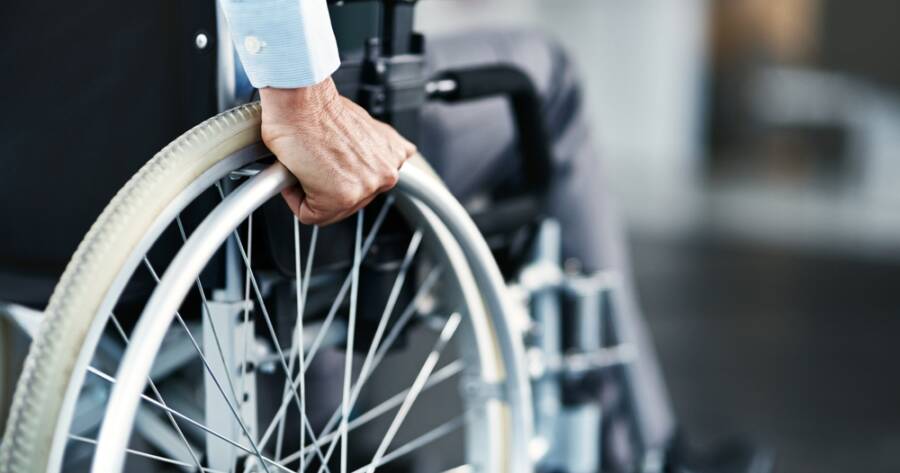Navigating Medicare to secure a wheelchair or mobility scooter can feel overwhelming, especially when trying to understand the coverage and requirements. Fortunately, Medicare Part B offers coverage for these essential devices under specific conditions. In this guide, we’ll walk you through the steps required to qualify for a wheelchair or scooter, the conditions under which Medicare may cover them, and what you can expect in terms of costs and procedures.
Medicare Coverage for Wheelchairs and Mobility Scooters
Medicare Part B (Medical Insurance) considers wheelchairs and mobility scooters to be durable medical equipment (DME). To qualify for coverage, the equipment must be prescribed by your doctor for use in your home. However, coverage only applies when the need for the equipment is deemed medically necessary—meaning it is essential to help with a physical condition that limits your ability to move effectively at home.
Both manual wheelchairs and power-operated vehicles, like scooters and power wheelchairs, fall under Medicare’s DME category, but each type has specific requirements. The device must serve to increase safety and independence, but only after other mobility aids (like canes or walkers) are proven insufficient.
Requirements to Get a Wheelchair or Scooter Through Medicare
To successfully apply for Medicare coverage, there are specific steps and documentation involved:
- Face-to-Face Evaluation
- You’ll need a face-to-face exam with a doctor to assess your mobility limitations.
- This exam must confirm that the equipment is medically necessary and that it will help you navigate your home more effectively.
- Prescription from Your Doctor
- Your doctor will need to write a detailed prescription specifying the kind of mobility device you need.
- The prescription must accompany the necessary documentation before Medicare will approve the equipment.
- Medicare-Approved Supplier
- Not all suppliers accept Medicare. You must ensure that both your doctor and DME supplier are enrolled in Medicare.
- Ask the supplier whether they accept Medicare assignment, meaning they will charge you only the approved deductible and coinsurance amounts.
- Prior Authorization for Power Devices
- If your provider recommends a power wheelchair, Medicare may require prior authorization.
- Your supplier will handle this request and submit it to Medicare along with your doctor’s documentation.
Cost Expectations for Wheelchairs and Scooters with Medicare
Once you meet your Part B deductible, Medicare covers 80% of the approved amount, leaving you responsible for 20% of the remaining cost. The total you’ll pay depends on several factors, including:
- Whether your doctor and supplier accept assignment
- Other insurance plans you may have
- Where the equipment is obtained (e.g., a hospital setting or a supplier’s office)
You may also have options to rent or purchase the equipment, depending on the type of device prescribed. Medicare allows some mobility devices to be rented for a certain period, while others must be purchased outright.
The Importance of Medicare-Participating Suppliers
Before committing to any supplier, ensure that they participate in Medicare. If the supplier does not accept Medicare’s assignment, you could be responsible for the entire cost of the device. Participating suppliers are required to limit their charges to the Medicare-approved amount, ensuring that your out-of-pocket costs remain manageable.
Additionally, if you encounter issues with prior authorization or other administrative hurdles, a Medicare-participating supplier can resubmit the request on your behalf. This can save time and prevent unnecessary delays in receiving your equipment.
What Happens If Your Prior Authorization Request Is Denied?
While Medicare aims to support individuals with legitimate mobility needs, there are cases where prior authorization may be denied. Some common reasons include:
- Insufficient documentation from your doctor
- Medicare determining the equipment is not medically necessary
If your authorization is denied, your DME supplier can resubmit the request with additional documentation. In certain cases, you may need to provide further details or undergo a second evaluation to meet Medicare’s criteria.
Navigating the Process with Care and Precision
Securing a wheelchair or mobility scooter through Medicare requires attention to detail, but it can be a straightforward process if you follow the necessary steps. Start by scheduling a face-to-face evaluation with your doctor and obtaining a detailed prescription. Always ensure that your supplier participates in Medicare and understands how to handle prior authorization requests.
While Medicare covers a significant portion of the costs, there are out-of-pocket expenses to plan for, including deductibles and coinsurance. Being aware of the potential hurdles, such as denied authorizations, and working closely with your supplier can make the process smoother. With the right preparation, you can obtain the equipment you need to maintain your independence and mobility at home.

